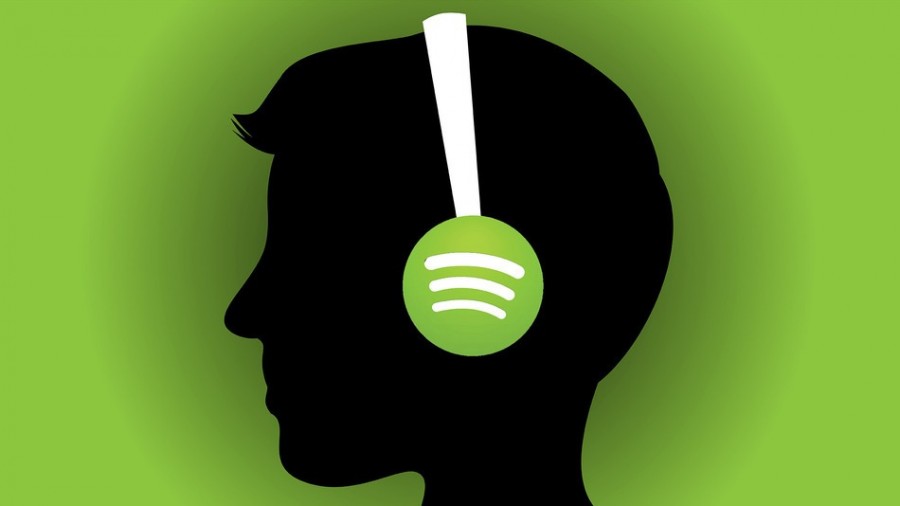To Stream Or Not To Stream: The Spotify Debate
Spotify has quickly become one of the largest music streaming services in the world with over 75 million active users and a catalog of tracks exceeding 30 million. While praised by users for its low (or free) cost, the program has come under fire from some of the music industry’s biggest stars. Many artists have claimed that Spotify’s payment method is unfair, leading many music fans to debate whether they should continue to support the platform.
Music is a product most people use on a daily basis. That’s what music is, a product. I do believe in the art of music and a musician’s right to their work, but in today’s society, there must be a price put on music. Artists have to make money in order to continue making music. This is the unfortunate truth.
Making music widely available while fairly compensating artists and record companies is an difficult balance to keep, and it is a fine line that many argue is being overstepped. One artist who has spoken out against music streaming is industry-giant Taylor Swift. Upon the release of her latest album 1989, Swift removed all of her music from Spotify. She expressed her reasoning in a Wall Street Journal editorial:
“Music is art, and art is important and rare. Important, rare things are valuable. Valuable things should be paid for. It’s my opinion that music should not be free,” wrote Swift.
Other household names have also opted to keep their collections off of Spotify. Garth Brooks, AC/DC, Radiohead, and until late December, The Beatles, to name a few. Some artists, such as Adele, have withheld their latest releases from the streaming service while leaving their past albums available. In the same Wall Street Journal editorial, Swift provided additional rationale for withholding her music from Spotify:
“Piracy, file sharing and streaming have shrunk the numbers of paid album sales drastically, and every artist has handled this blow differently,” wrote Swift.
Her reasoning for not releasing her music on Spotify is consistent with what other artists and industry professionals have said. While I am tempted to quickly brush off Swift’s remarks as greedy privilege, there is evidence of her assessment that music streaming affects album sales.
Adele’s 25 and Swift’s 1989, both of which are absent from Spotify, had the longest runs in top album sales on the Billboard chart in 2015. 1989 was the top seller for a total of five weeks earlier in the year, and 25 was on top for the six weeks following its release. Whether it is due to these two ladies’ massive star power or their refusal to release their albums on Spotify is debatable, although I have a strong suspicion that their albums’ absence from Spotify has a lot to do with it.
As an avid Spotify user myself (I streamed 545 hours of music in 2015), I have to admit I scoffed when I first heard these music stars criticizing my preferred platform. However, music streaming has larger implications on smaller artists trying to make a name for themselves. If these up-and-coming artists are not fairly paid for their music, they will have no choice but to stop creating. On the flip side of that, Spotify is an excellent platform for these little-known artists to get their music out to an audience of over 75 million.
There are many benefits and drawbacks to Spotify, and music streaming in general. As a music enthusiast, I love being able to access almost any song without breaking the bank. However, I also want the artists I love to be fairly compensated and continue making music. In the future, I predict more artists will withhold their music from Spotify. As a subscriber, I am going to continue enjoying Spotify’s extensive catalog while it lasts.

Marilyn is a senior who is involved in AD Club, NHS and the Glamour Gals Leadership Team. She has a fascination with all things music and attends concerts...







